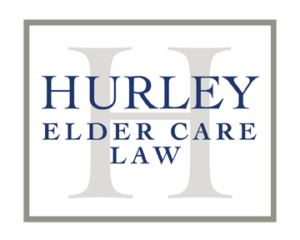Long-Term Care Facilities
Money, Death, and Medicaid—topics very few want to discuss. When it comes to planning ahead for retirement, long-term care needs or death, I have come to learn that few families ever approach these topics. Most of our families come to us in crisis – they have insufficient funds for retirement, no plan for their long-term…
Read MoreWe often hear families talk about “Medicaid Nursing Homes” as if there are nursing homes in Georgia that are for residents relying on Medicaid. There is a fear behind this assumption that Medicaid beneficiaries are relegated to terrible nursing homes. Fortunately, this is a myth. Most nursing homes in Metro Atlanta are dual-certified for Medicare…
Read MoreTo qualify for nursing home Medicaid, applicants must pass some fairly strict tests on the amount of assets they own. While the Medicaid rules themselves are complicated and tricky, it’s safe to say that a single person will qualify for Medicaid as long as he/she has only exempt assets plus a small amount of cash…
Read MoreI want to look at the case we mentioned last week again: Sarah applied for Medicaid on behalf of her father, Don. Don owned a home that he placed in an irrevocable trust in 2014. When he first moved to the nursing home, he had about $85,000 in his checking account and a few certificates…
Read MoreAfter our last blog post about qualifying for nursing home Medicaid while owning a home, we received numerous questions about just giving the house away. Several sons and daughters were advised to just sign a quitclaim deed transferring mom or dad’s house to them before moving them into a nursing home. They thought that just…
Read MoreIs it true that I have to sell mom’s home before she can get Medicaid? We just received this question yesterday…and the day before that… and a few times last week… There is so much confusion about Medicaid, especially when it comes to home ownership. A nursing home resident can own a home and still…
Read MoreThe eligibility rules for Medicaid can be confusing, and this is especially true if you think you need a Qualified Income Trust (or QIT). In today’s blog, we want to address how the QIT (the Qualified Income Trust, or Miller Trust) is used. A QIT is needed when a nursing home resident’s income exceeds the…
Read MoreOver the last few months, we’ve addressed the top questions about nursing home Medicaid for couples. Today, let’s take a closer look at Medicaid rules for individuals by focusing on the income rules. Medicaid is a means-tested, government-provided health insurance benefit. It is the largest payer of nursing home care in Georgia. Most nursing home…
Read MoreApplying for Nursing Home Medicaid can be confusing and stressful. We are committed to helping our clients get the care they need and securing the benefits they deserve while also reducing/minimizing the burden as much as possible. We complete the initial application, submit the complete and accurate application as soon as possible, and handle all…
Read MoreHere’s a great question that we received just the other day: My mom lives in an assisted living community and my dad lives in a nursing home. If my dad goes on Medicaid, will she be allowed to keep any of his income? Yes, Medicaid has a Monthly Maintenance Needs Allowance (MMNA) that allows the…
Read MoreSubscribe to our blog and monthly newsletter.











